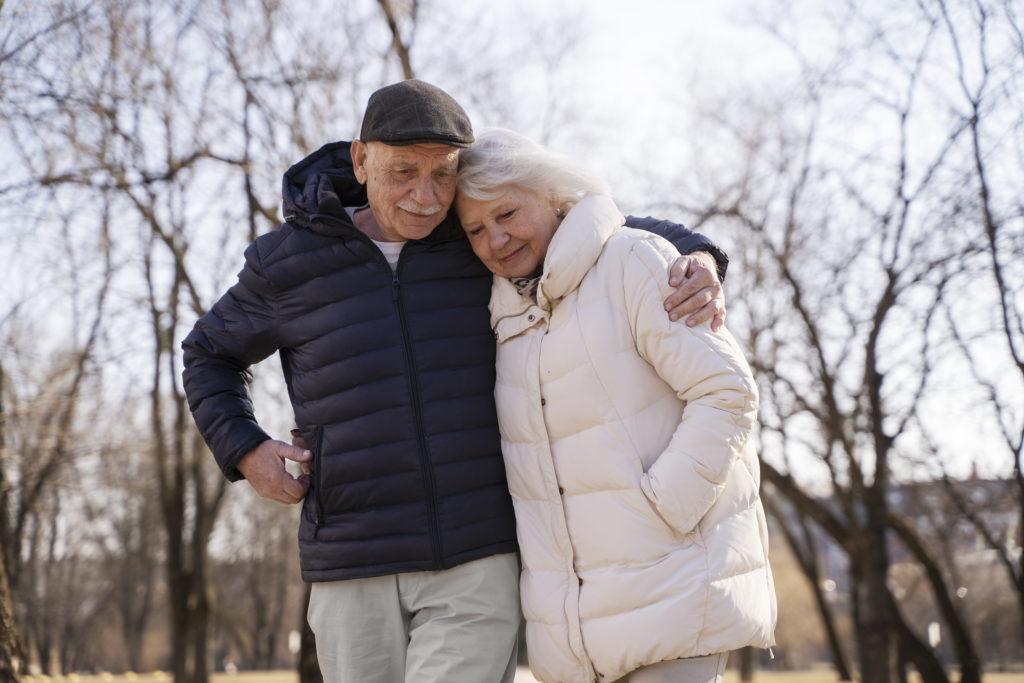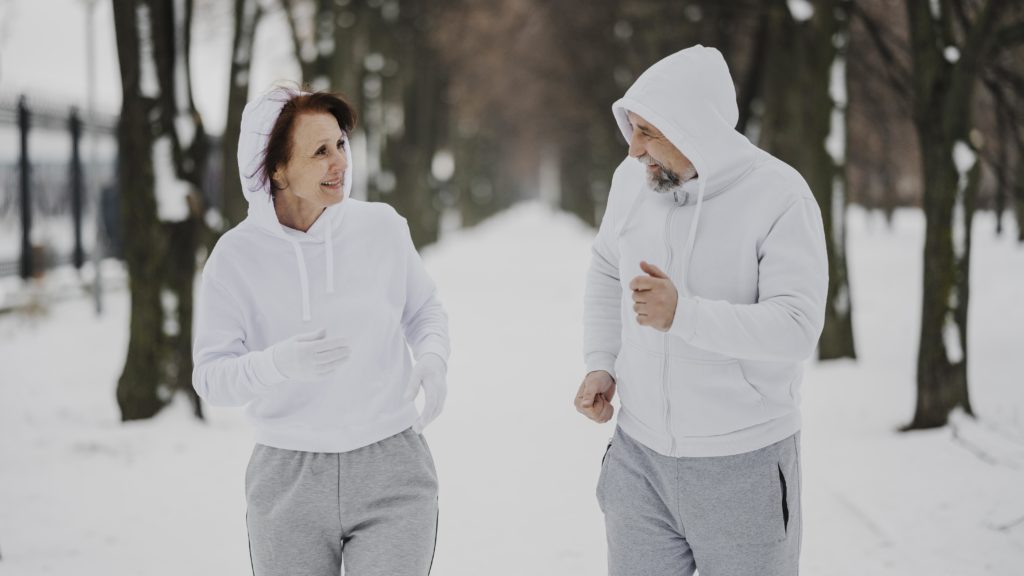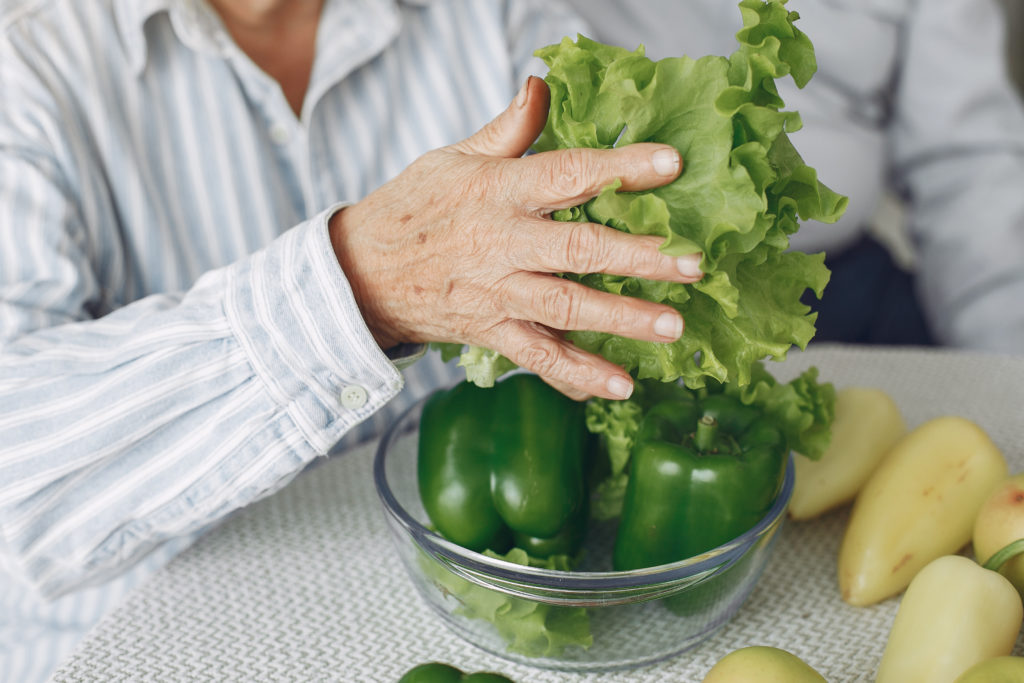TOP WINTER TIPS FOR SENIORS
Senior care | January 11, 2023
Are you ready for winter? Of course, you are. We all know that fall is a great time of the year, but winter can be hard on our bodies if we’re not careful. Although there are many different reasons why your senior health might not be as good as it could be, there are some simple things you can do to improve your overall health and well-being during this time of year.

Winter is here and with it comes cold winter weather. The freezing temperatures and windy conditions can be especially challenging for seniors. If you are caring for or living with a senior in your home, you already know that they experience some of the most extreme symptoms during those winter months.
As we get older, many of our day-to-day problems can become more acute, such as dry skin or difficulty hearing. But other ailments may progress unabated despite efforts to prevent them from recurring. Regardless of your age and gender, winter health tips for seniors will help you fight off colds and cases of flu that cause a lot of misery for our senior population every winter season. In fact, a recent study found that 70 percent of adults over the age of 65 are unable to go out into the cold without getting sick.
The most common winter health hazards for seniors include:
⦁ Slippery surfaces
⦁ Poor visibility due to icy road conditions or poor lighting
⦁ Poor nutrition due to limited food choices and decreased activity levels
⦁ Exposure to inclement weather, such as wind and precipitation
⦁ Cold temperatures (especially if you’re older)
In this article, we’ll cover some winter healthcare tips for seniors to help them avoid common issues caused by winter weather and keep their bodies strong and healthy.
⦁ Dress in Layers
In the winter, it’s important to dress in layers so that you can adjust your clothing as necessary. This will help keep you warm and comfortable, especially if you live in a cold climate. If you want to make sure that you stay warm, then one of the best things you can do is wear layers of clothes with long sleeves and pants. You should also make sure that your clothes are fitted tightly so that they don’t flap around when you move around.
If possible, try to wear boots or shoes that cover most of your feet so that they don’t get cold while walking outside on snowy days. If there are days when it’s just not possible for seniors to leave their homes because of snow or frostbite hazards, then having blankets and hot drinks ready for them can help keep them safe inside their homes until conditions improve in the springtime.
Here are some other tips:
⦁ Wear socks that fit well and that have good cushioning in the sole.
⦁ It’s also a good idea to have some sort of hat or scarf on hand if it is cold.
⦁ Wear sunglasses with side shields to protect your eyes if there is glare on the road or snow on the ground.
⦁ Use gloves if you need them to avoid frostbite or other skin damage caused by exposure to cold temperatures.
⦁ Prepare for Ice and Snow
Seniors often don’t think about the ice and snow when they’re outside. But it’s important for seniors to prepare for winter weather, especially if they live in a cold. Use caution when walking or driving on ice or snow. If possible, walk on the road in front of your home instead of in the street.
Don’t go out alone if it’s dark or raining, because you might not see hazards like puddles or icy patches. Don’t leave your car unattended either — even for just a few minutes! Always carry a flashlight with you in case you need to get help after dark. Have an emergency plan for what to do if someone becomes lost, injured, or falls ill during cold weather conditions.
If you have trouble getting around inside your home during cold weather, consider installing anti-freeze lines in your home so that you can heat it up with hot water instead of burning extra fuel bills on the fireplace or gas heater.
Make sure your home is ready for winter. If you have power outages, keep flashlights, batteries, and candles on hand. Fill your bathtub with water and wrap a plastic bag around your feet to keep them warm. If you have running water, use it for dishes and laundry instead of taking baths or showers.
Keep your home warm. Make sure you have curtains, blankets and comforters on hand in case of a power outage. Don’t forget to check pipes in your basement and attic, as well as water heaters. Check pipes in your home. If you live in an apartment building or condominium, make sure all pipes are protected so no water leaks into other units. If you live in a single-family home, use pipe tape (available at hardware stores) to seal any gaps around faucets and sinks.
Use battery-powered heaters instead of candles or lit lanterns when it’s cold outside. Batteries last longer than candles and lanterns do when it’s cold outside because they don’t need oxygen for combustion
⦁ Watch Your Step
Winter is a dangerous time for seniors. It’s easy to lose your balance and fall, especially on ice or snow-covered sidewalks. If you’re walking outside in the winter months, keep an eye out for hazards. This includes ice and snow that can cause slips and falls. Also, remember that sidewalks are not necessarily cleared of snow after any significant amount of snowfall. Even if it looks safe, walk on a sidewalk only when absolutely necessary.

Walking during the winter can be tricky for older adults. The cold, snow, and ice make walking more difficult and potentially dangerous. And older adults need to be particularly careful when it comes to their balance and vision.
Here are some tips to help you stay safe while walking:
⦁ Watch where you’re going. Before leaving home, walk outside and look around for hazards such as ice, snow, or trees that could cause you to trip or fall.
⦁ Wear appropriate footwear. Keep an eye out for slippery surfaces like wet leaves and ice-covered sidewalks or walkways. If your shoes aren’t insulated enough, they won’t keep your feet warm — which could lead to frostbite if you don’t take extra precautions.
⦁ Walk with a partner or family member who can protect you if needed. Make sure they know how to respond in case of an emergency situation; this could include calling 911 after calling for help from inside your house or car.
⦁ If it’s too cold outside to walk safely without assistance, consider using an elevator instead of stairs — especially if you have health conditions that make it difficult to form.
Even if you don’t fall and break something while walking around outside during winter weather, there are still plenty of ways you can hurt yourself without even realizing it! Take precautions like wearing long sleeves when it’s cold out to prevent frostbite on exposed skin. Also wear sunscreen regularly to protect against sun damage and use caution when jumping over puddles.
⦁ Keep an Emergency Kit on Hand
The cold can be an uncomfortable reality of winter, but it’s nothing to be afraid of. You just have to make sure you keep yourself safe when the temperature drops. The first step is to get an emergency kit together so that you know what to do if you need help. A few things you might want include:
⦁ Heat packs or hot water bottles
⦁ Extra food and water
⦁ Flashlight
⦁ First aid kit
⦁ Tool kit
⦁ Eat healthy foods

Eating healthy foods can reduce stress and help boost energy levels in your body. Healthy foods include fruits, vegetables and whole grains such as brown rice or whole wheat breads and cereals. You don’t have to go overboard on calories; just eat a balanced diet of protein, carbohydrates and fruits and vegetables throughout the day.
Although the winter months can be difficult for seniors, with some preparation and awareness, you can stay healthy. That’s why Comfort Keepers always provide the best possible healthcare awareness for seniors during the winter season.
References
⦁ HealthDay “Winter Holds Many Hazards for Seniors, Expert Warns “
https://consumer.healthday.com/general-health-information-16/emergencies-and first-aid-news-227/winter-holds-many-hazards-for-seniors-expert-warns-671896.html
⦁ HealthInAging.org. “Winter Safety Tips for Older Adults”. Web. 2011.
https://www.healthinaging.org/tools-and-tips/tip-sheet-winter-safety-older-adults
⦁ Government of Canada. “Extreme cold “
https://www.canada.ca/en/health-canada/services/healthy-living/your-health/environment/extreme-cold.html
Individualized Home Care Options
Long-Term Home Care, 24 Hour Home Care & Short Term Care Options Customized for You








